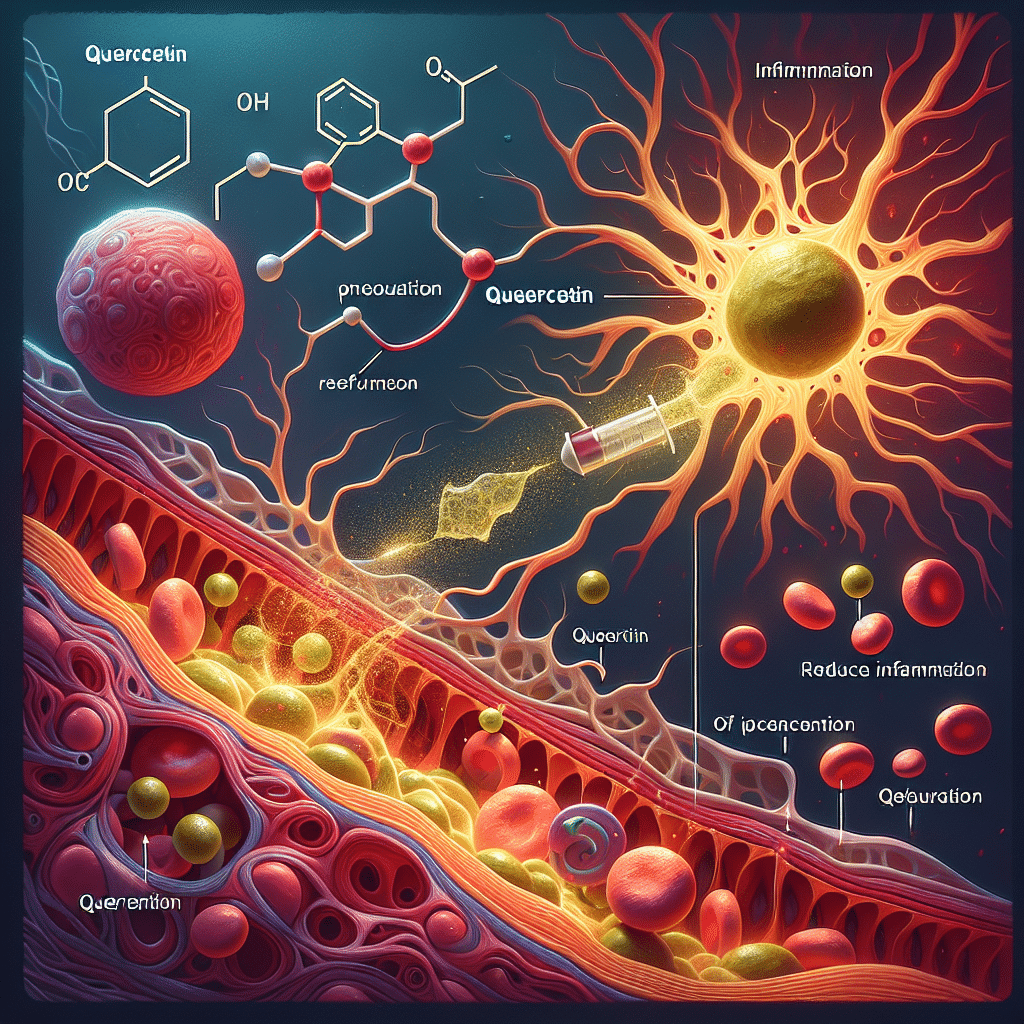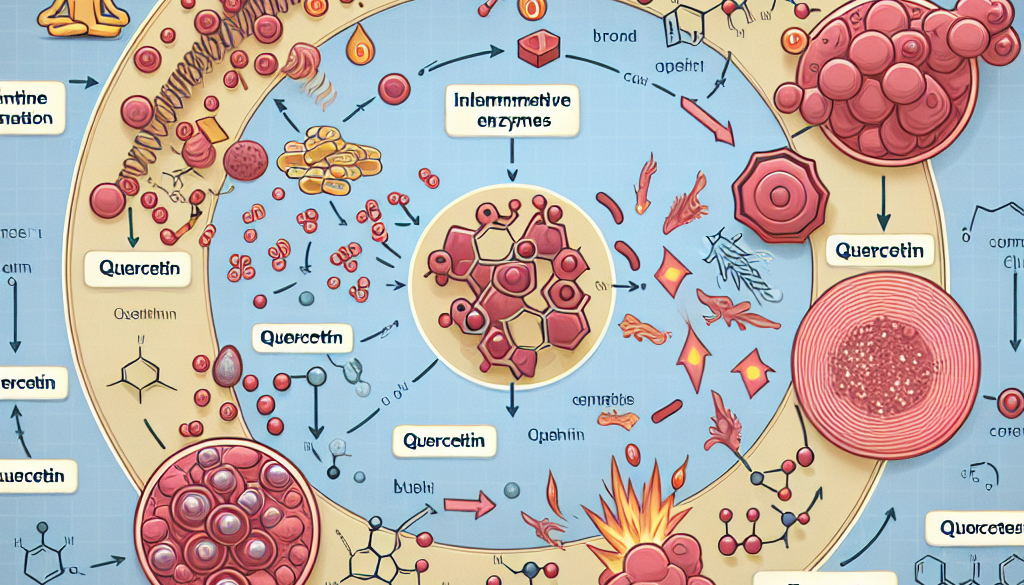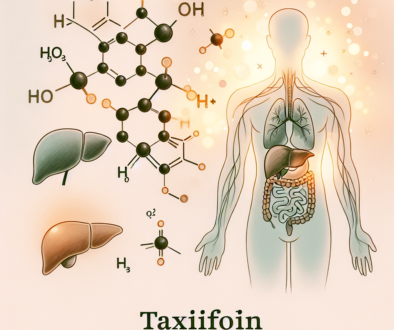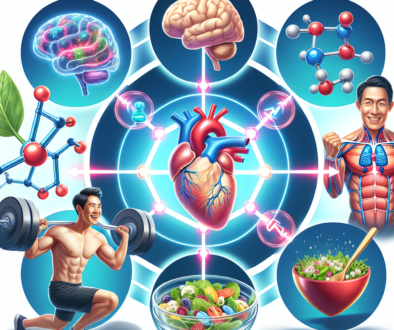How does quercetin reduce inflammation?
-
Table of Contents
- Quercetin’s Role in Reducing Inflammation: A Deep Dive
- Understanding Inflammation and Its Impact on Health
- Quercetin: A Natural Anti-Inflammatory Agent
- How Does Quercetin Reduce Inflammation?
- Case Studies and Research Findings
- Quercetin’s Bioavailability and Efficacy
- Practical Applications of Quercetin
- Conclusion: Quercetin as a Potent Anti-Inflammatory Compound
- Discover ETprotein’s High-Quality Protein Products
Quercetin’s Role in Reducing Inflammation: A Deep Dive

Inflammation is a natural response of the body to injury or infection, but when it becomes chronic, it can lead to a host of health problems. Quercetin, a plant pigment (flavonoid) found in many fruits, vegetables, leaves, and grains, has been widely studied for its potential anti-inflammatory effects. This article explores the mechanisms by which quercetin may reduce inflammation, supported by scientific research and studies.
Understanding Inflammation and Its Impact on Health
Inflammation is a double-edged sword; it’s essential for healing but can cause damage when uncontrolled. Chronic inflammation is linked to diseases such as arthritis, heart disease, and diabetes. Therefore, managing inflammation is crucial for maintaining overall health.
Quercetin: A Natural Anti-Inflammatory Agent
Quercetin is known for its antioxidant properties, but its role in combating inflammation is particularly significant. It’s found in high amounts in foods like onions, apples, and kale, making it accessible through a healthy diet.
How Does Quercetin Reduce Inflammation?
Quercetin’s anti-inflammatory effects are attributed to several mechanisms, which include:
- Inhibition of inflammatory enzymes: Quercetin inhibits enzymes like cyclooxygenase (COX) and lipoxygenase (LOX), which are involved in the production of pro-inflammatory mediators.
- Suppression of inflammatory cytokines: It reduces the production of cytokines such as tumor necrosis factor-alpha (TNF-α) and interleukins, which play a role in promoting inflammation.
- Modulation of cell signaling pathways: Quercetin influences various cell signaling pathways, including the NF-κB pathway, which regulates the expression of genes involved in inflammation.
- Reduction of oxidative stress: By neutralizing free radicals, quercetin reduces oxidative stress, which can trigger inflammatory responses.
Case Studies and Research Findings
Several studies have demonstrated quercetin’s effectiveness in reducing inflammation. For instance, a study published in the “Journal of Nutrition” found that quercetin supplementation reduced markers of inflammation in overweight subjects. Animal studies have also shown that quercetin can reduce inflammation in conditions like arthritis.
Quercetin’s Bioavailability and Efficacy
While quercetin is promising, its bioavailability is a concern. The body doesn’t absorb quercetin efficiently, but incorporating it with other nutrients, such as vitamin C or fats, can enhance its absorption.
Practical Applications of Quercetin
Quercetin can be incorporated into the diet through food sources or supplements. It’s important to consult with a healthcare provider before starting any supplement regimen, especially for individuals on medication or with chronic health conditions.
Conclusion: Quercetin as a Potent Anti-Inflammatory Compound
In summary, quercetin has demonstrated significant potential in reducing inflammation through various mechanisms. Its natural occurrence in many foods makes it an accessible option for those looking to manage inflammation through diet. While more research is needed to fully understand its effects, quercetin remains a promising compound in the fight against chronic inflammation.
Discover ETprotein’s High-Quality Protein Products
In addition to incorporating anti-inflammatory compounds like quercetin into your diet, consuming high-quality proteins is essential for overall health. ETprotein offers a range of organic bulk vegan proteins and L-(+)-Ergothioneine that can complement your dietary needs. Their products are non-GMO, allergen-free, and come in various forms to suit different industries. Whether you’re looking for supplements for sports nutrition, weight management, or general health and wellness, ETprotein has you covered.
About ETprotein:
ETprotein, a reputable protein and L-(+)-Ergothioneine (EGT) Chinese factory manufacturer and supplier, is renowned for producing, stocking, exporting, and delivering the highest quality organic bulk vegan proteins and L-(+)-Ergothioneine. They include Organic rice protein, clear rice protein, pea protein, clear pea protein, watermelon seed protein, pumpkin seed protein, sunflower seed protein, mung bean protein, peanut protein, and L-(+)-Ergothioneine EGT Pharmaceutical grade, L-(+)-Ergothioneine EGT food grade, L-(+)-Ergothioneine EGT cosmetic grade, L-(+)-Ergothioneine EGT reference grade and L-(+)-Ergothioneine EGT standard. Their offerings, characterized by a neutral taste, non-GMO, allergen-free attributes, with L-(+)-Ergothioneine purity over 98%, 99%, cater to a diverse range of industries. They serve nutraceutical, pharmaceutical, cosmeceutical, veterinary, as well as food and beverage finished product distributors, traders, and manufacturers across Europe, USA, Canada, Australia, Thailand, Japan, Korea, Brazil, and Chile, among others.
ETprotein specialization includes exporting and delivering tailor-made protein powder and finished nutritional supplements. Their extensive product range covers sectors like Food and Beverage, Sports Nutrition, Weight Management, Dietary Supplements, Health and Wellness Products, and Infant Formula, ensuring comprehensive solutions to meet all your protein needs.
As a trusted company by leading global food and beverage brands and Fortune 500 companies, ETprotein reinforces China’s reputation in the global arena. For more information or to sample their products, please contact them and email sales(at)ETprotein.com today.












